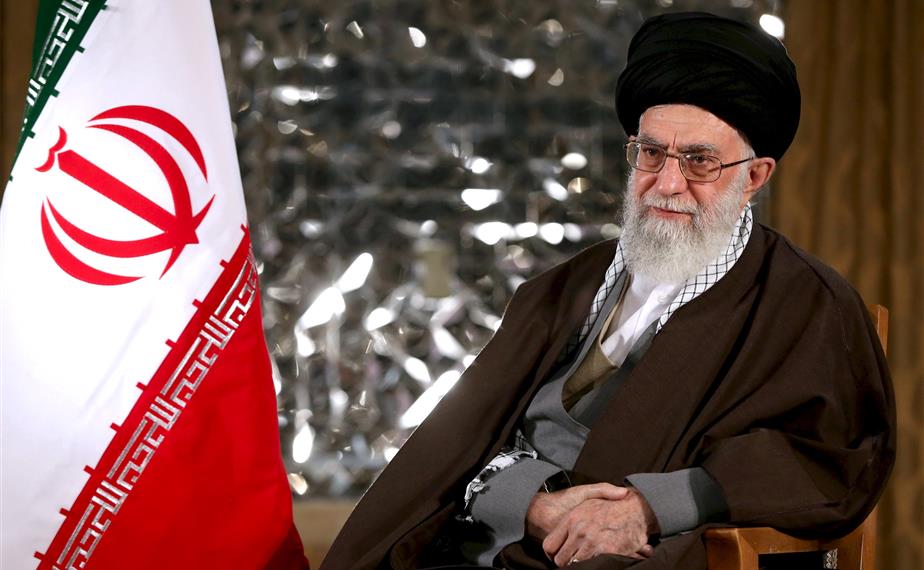London-Iran’s Supreme Leader Ali Khamenei warned that any negotiation or cooperation with the U.S. regarding the Syria cause will be considered a direct threat to the Iranian regional role.
The Supreme Leader hinted that Washington’s inclination to coordinate with Tehran in what concerns Syria stems out of ulterior motifs, “we do not want this cooperation, since it is aimed at inhibiting the Iranian presence in the region.”
On the other hand, Khamenei demanded that the U.S. constrains its regional interference, claiming that stances taken by the Iranian administration are “rational.”
Two days ago, Khamenei spoke before a gathered mass of representatives of student associations in Iran. The meeting comes in context of a series of Ramadan-held assemblies which bring together the Iranian Supreme Leader with delegates from diverse official and popular sects and sectors. Khamenei’s speeches were given in a reportedly different and unprecedented approach.
Last June, Norway-held negotiations held between U.S. Secretary of State John Kerry and his Iranian counterpart Mohammad Javad Zarif regarding Syria were made public. Afterwards, speculations rapidly arose doubting Iranian flexibility, especially after Hossein Amir-Abdollahian, the former Deputy Foreign Minister for Arab and African Affairs in Iran’s Ministry of Foreign Affairs, was forced to resign.
Abdollahian was considered to be the Islamic Revolutionary Guard Corps (IRGC) godfather diplomat sent to the Middle East.
Moreover, Quds Force division chief commander Qassem Soleimani alongside the so-called “Hezbollah” Secretary General Hassan Nasrallah made threats on disturbing plans being prepared behind closed curtains.
Khamenei further reiterated his negative comments against the Iranian “landmark” nuclear deal with the West, saying that “the U.S., whether in congress or the administration, remains in feud with the people of Iran.”
He accused Washington of spurring strife in the Iranian government, sorting out officials as either good or bad.
At the meeting with the student associations, Khamenei was faced with discomforting questions posed by the scholars. A number of questions was on the Iranian regional role, the nuclear deal, the 2009 Iranian presidential election protests, social standings and the reeking corruption of the judiciary system and financial institutions.
A PhD law student at the University of Tehran, Ali Kamfirouzi, harshly criticized Khamenei. The academic scholar, in an undertone, argued that Mir-Hossein Mousavi and Mehdi Karroubi have been unjustly denied the right to self-defense by citing legal articles on citizens’ rights — the two led what later came to be known as the 2009 presidential protests in Iran or otherwise, the Persian Awakening by western media.
Khamenei considers the protests to be an act of unwarranted sedition.
Kamfirouzi, receiving broad support from the public, criticized the current state-of-affairs of institutions affiliated to the Supreme Leader especially. Khamenei’s harsh dealing with press freedom that easily lands any journalist or editor-in-chief into the tedious brawls of controversial trials was a highlight of the reviews made.
